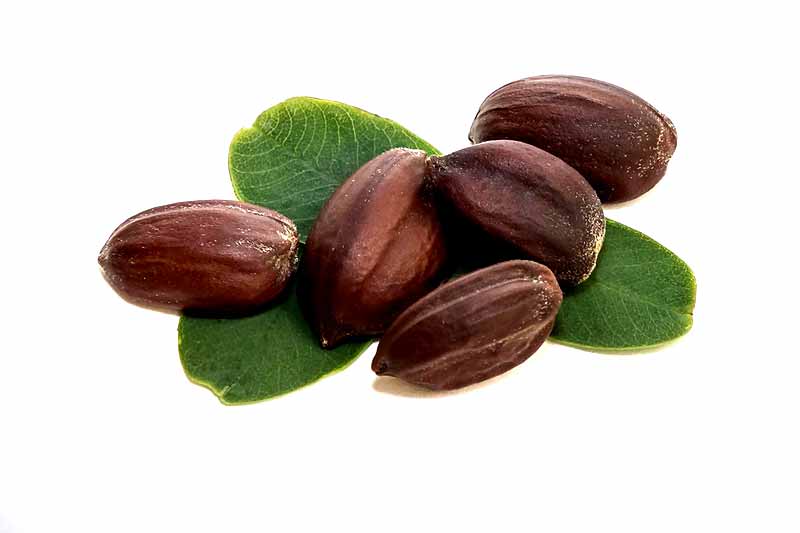Quick Facts
Botanical Name: Simmondsia chinensis
Family Name: Simmondsiaceae
Common Name: Jojoba Seed Oil
Part used: Seeds
Specific Gravity: 0.90500 - 0.92500 at 25°C
Optical Rotation: +3.5 - +6.0
Refractive Index: 1.46000 - 1.46800 at 25°C
Blends well with: Avocado, Sweet almond, Camellia
Uses: The oil has amazing healing effects of sunburns, minor wounds, and canker sores.
This oil is used as an appetite suppressant.
Countries where it's found
The shrub is native to the Sonoran and Mojave deserts of Arizona, southern California, and north-western Mexico. The shrub has been established in a number of deserts and semi-deserts such as Israel, Argentina, Peru, and Australia.
Harvesting Information
Jojoba is harvested by hand and harvesting is done annually. The seeds mature about three months after plantation and are best harvested when mature and ripe.
History of the Plant
The term "jojoba" originated from the O'odham people of the Sonoran desert. The oil has been used by Native Americans for hundreds of years. They used the oil in the treatment of burns, cuts, bruises, and sore throats.
 Extraction Process
Extraction Process
Jojoba oil is extracted through cold pressed method. The oil color ranges from yellow to golden yellow
Commonly known Benefits
Health benefits
The oil rarely causes any allergic reactions.
It regulated sebum production and controls the greasy structure of the skin.
The oil is used as lip balm for chapped and dry lips.
The essential oil of jojoba aids in treating acne, cuts, warts, pimples, mouth ulcer, and athletes foot.
Because of its advanced molecular stability, the oil is used in fragrances.
The oil is used a dietary supplement and appetite suppressant.
The oil is rich in anti-oxidants that act as effective lubricant protecting skin from superficial lines, wrinkles and aging.
Because of its purity, jojoba essential oil is effective in treating adult acne, neurodermatitis, and psoriasis.
It heals inflamed skin, eczema, and balances oil production.
Jojoba oil consists of liquid was esters that act as antimicrobial agents inhibiting the growth of bacteria and fungi that attack the skin.
The oil is rich in vitamin E, B, minerals, copper, zinc, and chromium. These compounds keep the skin healthy.
The oil is used in massage therapies.
Jojoba oil when rubbed on nails and cuticles strengthen them.
The oil blends with other essential oil and acts as a carrier.
Topical application of the oil prevents sun tan on elbows and knees.
Other benefits
The oil is used as an alternate for sperm whale oil in cosmetics and other industries.
Jojoba oil is an active compound in many skin cares products such as creams, lotions, hair shampoos, and conditioners, and
Perfumes
Pure jojoba oil has better benefits when used on skin and hair.
The oil enhances the growth of hair cells and prevents dandruff, clogged scalp follicles, and hair falls.
The oil has indefinite shelf life and can be stored even at room temperature.
It effectively removes makeup such as skin foundation and lipstick.
Regular application of the oil makes eyelashes thicker and more beautiful.





